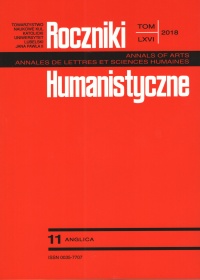What Kind of Bilingual Education is Most Beneficial? The Psycholinguistic Perspective
Abstract
The significance of bilingual education has grown remarkably in the modern society since the benefits of bilingualism were affirmed long ago. However, the specific kind of bilingualism resulting in the most favourable effect has not been clarified as much. According to our investigation held on the subject of bilingualism in terms of the comprehension of a third language without its prior learning, bilingualism between two different language families contributes significantly to the understanding of another language belonging to a language family manifested in the bilingual informant. Hence, for example, a person representing a native-like capacity in a Slavic language, such as Russian, and a Romance language, such as Romanian (the case investigated in the research), will present the development of specific psycholinguistic strategies implying particular brain functioning as well as language data analysis resulting in the ability to access and understand, then subsequently acquire another Slavic or Romance language more efficiently. Evidently, this specific example does not refer to the Russian-Romanian bilingualism merely, but to any bilingualism between two language families. Consequently, how can it contribute to the educational system? Providing a child with a strong bilingual education based on the bilingualism between two different language families can result in the subsequent opportunity for an easier acquisition of other languages provided they belong to one of the language families the child masters. Additionally, the knowledge of many languages brings more facility in terms of eventual language learning in general, including dealing with a language from a different language family.
References
Albert, Martin L., and Loraine K. Obler. 1978. The bilingual brain: Neuropsychological and Neurolinguistic Aspects of Bilingualism. Orlando, London: Academic Press.
Antonchuk, Daniela. 2017. “Bilingualism and access to the Spanish language by Russian-Romanian bilinguals.” Sustainable Multilingualism 11: 74–104. https://dx.doi.org/10.1515/sm-2017-0014.
Appel, Rene, and Pieter Muysken. 1993. Language contact and bilingualism. London: Edward Arnold.
Baker, Colin. 2006. Foundations of bilingual education and bilingualism. Buffalo, Toronto, Sydney, Clevedon: Multilingual Matters.
Baker, Colin. 1990. Key Issues in Bilingualism and Bilingual Education. Clevedon, Philadelphia: Multilingual Matters.
Bee Chin, Ng, and Gillian Wigglesworth. 2011. Bilingualism. An advanced recourse book. New York, London: Routledge Applied Linguistics.
Cenoz, Jasone, and Fred Genesee. 1998. Beyond bilingualism: Multilingualism and Multilingual Education. Clevedon, Philadelphia, Toronto, Sydney, Johannesburg: Multilingual Matters.
Cummins, Jim, and Merrill Swain.1986. Bilingualism and education: aspects of theory, research and practice. London, New York: Longman.
Dewaele, Jean-Marc, Alex Housen, and Wei Li. 2003. Bilingualism: Beyond Basic Principles, Clevedon, Buffalo, Toronto, Sydney: Multilingual Matters.
Grant, Angela, Dennis Nancy A., and Ping Li. 2014. “Cognitive control, cognitive reserve, and memory in the aging bilingual brain.” Frontiers in psychology 5:1401. https://dx.doi.org/10.3389/fpsyg.2014.01401.
Grosjean, François. 1982. Life with two languages. An introduction to bilingualism. Cambridge, Mass., and London, England: Harvard University Press.
Hakuta, Kenji, Bernardo M. Ferdman, and Rafael M. Diaz. 1987. “Bilingualism and cognitive development: three perspectives.” In Sheldon E. Rosenberg (ed.). Advances in Applied Psycholinguistics. Volume 2. New York: Cambridge University Press.
Hamers, Josiane F., and Michel H.A. Blanc. 2000. Bilinguality and bilingualism. Cambridge, UK: Cambridge University Press.K
Nicol, Janet L. 2001. One mind, two languages. Bilingual language processing. Malden, Mass.: Blackwell Publishers Inc.
Hornby, Peter A. Bilingualism. Psychological, social and educational implications. New York, San Francisco, London: Academic Press.
Koschat, Franz, and Gottfried Wagner. 1994. Bilinguale Schulen, Wien: Bundesministerium für Unterricht und Kunst.
Kroll, Judith F., and Annette M.B. de Groot. 2005. Handbook of bilingualism: Psycholinguistic Approaches. Oxford, UK: Oxford University Press.
Morris Jones, Bob, Paul A. Singh Ghuman. 1995. Bilingualism, education and identity. Cardiff: University of Wales Press.
Paradis, Michael. 2009. Declarative and Procedural Determinants of Second Languages. Amsterdam, Philadelphia: John Benjamins Publishing Company.
Copyright (c) 2018 Roczniki Humanistyczne

This work is licensed under a Creative Commons Attribution-NonCommercial-NoDerivatives 4.0 International License.





